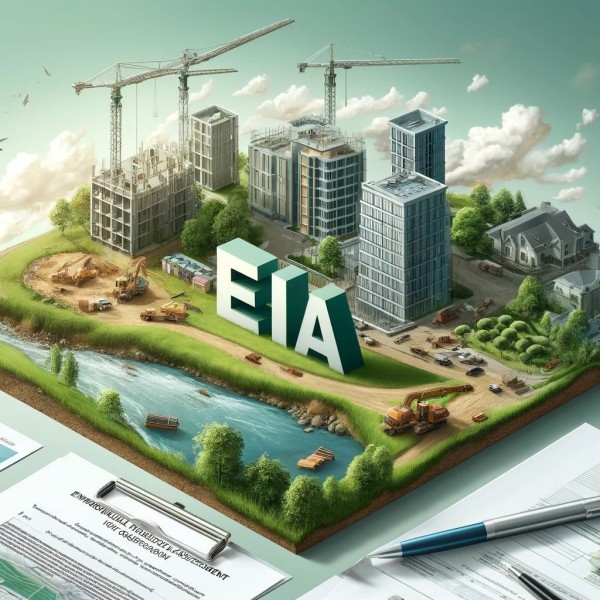What is EIA in construction in Thailand?
The environmental impact of construction on the surrounding environment is becoming an increasingly significant topic worldwide, including in Thailand. An important tool for assessing and managing these impacts is EIA (Environmental Impact Assessment). EIA helps identify, evaluate, and minimize the negative environmental consequences of construction projects. In this article, we will examine what EIA is, how it is conducted, and its significance in the construction industry in Thailand.
What is EIA?
EIA (Environmental Impact Assessment) is a process that assesses the potential environmental consequences of a planned construction project. The goal of EIA is to identify possible negative impacts on the environment, human health, and socio-economic conditions before the project begins. EIA also develops measures to minimize these impacts.
The EIA Process
The EIA process in Thailand includes several key stages:
- Screening: Determining the necessity of conducting an EIA for a specific project.
- Scoping: Defining the main aspects and scope of the study, including the selection of environmental factors to be assessed.
- Impact Analysis: Conducting detailed research and analyses to identify potential environmental impacts.
- Mitigation Measures: Proposing measures to minimize or eliminate negative impacts.
- Public Participation: Involving the public and stakeholders in the assessment process and discussing the results.
- Decision Making: Making a decision on the feasibility of the project considering the identified impacts and proposed mitigation measures.
- Monitoring and Control: Observing the implementation of the project and controlling the execution of impact minimization measures.
Importance of EIA in Construction in Thailand
In Thailand, conducting an EIA is mandatory for many large construction projects, such as residential complexes, infrastructure projects, industrial enterprises, etc. This helps prevent or reduce negative impacts on the environment, preserve natural resources, and improve the quality of life for local residents. Without obtaining an EIA, it is impossible to start construction, as it is the primary document confirming the environmental safety of the project.
Conclusion
EIA plays a crucial role in the sustainable development of the construction industry in Thailand. It allows identifying and assessing potential environmental risks, developing effective measures to minimize them, and ensuring compliance with environmental standards. As a result, conducting EIA contributes to the creation of safer and more environmentally friendly construction projects, which is an important step towards the sustainable development of the country.
Join our  Telegram channel today – unlock personalized consultations and an exclusive assortment of property picks for living and investment from Phuket's trusted developers!
Telegram channel today – unlock personalized consultations and an exclusive assortment of property picks for living and investment from Phuket's trusted developers!

